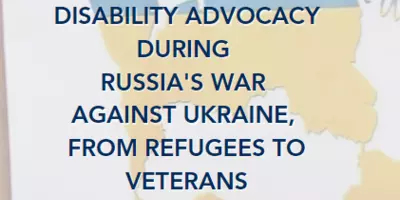
A Statement From CERES Director, Ed Schatz
On February 23, 2022, few in the West had heard of places like Bucha, Izium, and Mariupol. Most knew nothing of cluster munitions, MANPADS, and Leopard tanks. Drones were the domain of hobbyists and the occasional humanitarian organization delivering assistance to remote areas. For its part, NATO seemed eternally doomed to disunity and bickering about how to share the costs of collective security.
It has been a year since Russia launched its unprovoked and brutal full-scale war against sovereign Ukraine. The toll has been extraordinary: more than two hundred thousand people are estimated to have perished. Russia has relentlessly attacked Ukraine’s civilian infrastructure; the price-tag for rebuilding Ukraine after the war may exceed one trillion USD. In the meantime, nearly eight million Ukrainians are estimated to have fled Ukraine and some six million have been displaced within the country.
Ukrainian bravery, resilience, and ingenuity have been extraordinary. Instead of succumbing to the Russian onslaught in a matter of days, as many predicted, Ukraine has turned the tide and is now in a position to defeat Russia and regain all of its territory. Western solidarity, military support, and humanitarian assistance have dwarfed expectations. Rarely has an issue achieved such obvious consensus as has the matter of supporting Ukraine’s efforts. The morality of our moment is clear: the fate of global democracy genuinely hangs in the balance.
It has been one year—a very long year for Ukraine and Ukrainians. It has been a year in which surprising forms of humanity and solidarity have emerged. It has been a deeply saddening year, but also an inspiring, purposeful year.
Our community at CERES has been acutely affected by this war. Some staff and faculty members hail originally from Ukraine. Many of our faculty have conducted research in Ukraine, and many of our students have gone to Ukraine on exchange or served as interns in Ukrainian NGO’s. We have welcomed students from Ukraine at the BA, MA, and PhD levels into our academic community. Our Petro Jacyk Program (PJP) for the Study of Ukraine has run over 50 webinars, with hundreds and hundreds of viewers. PJP has mounted an innovative non-residential fellowship program, allowing dozens of scholars based in Ukraine to continue their scholarly activities while building community with fellow scholars in Ukraine and Canada. And we have launched a SSHRC-funded research initiative with partners at Kyiv-Mohyla Academy to study (in real time) acts of humanity during war. These activities complement those happening elsewhere in the university, including a new dual-degree program between the Munk School and the Kyiv School of Economics as well as an enormously successful effort to bring Kyiv-Mohyla students on exchange to the Faculty of Arts and Sciences (generously supported by the Temerty Foundation).
It took the Soviet Union ten years to recognize the folly that was its invasion of Afghanistan and withdraw its troops ignominiously. There is too much at stake for Ukrainians, and indeed for the world, to wait for the Kremlin to come to its senses. This means that the urgency remains: to offer whatever we can, wherever we can, however we can.
As a scholarly community, CERES is mounting new initiatives to scale up our engagement with Ukrainian studies and develop its vibrant interconnections with the broader region and, indeed, the entire world. Our community cannot end Russia’s war, but we can do our part to educate a new generation of students and specialists who are well attuned to the dynamics—sometimes brutal and horrific, sometimes humane and inspiring—of Europe and Eurasia. For the ongoing involvement of students, staff, faculty, administrators, and partners, we are deeply grateful.

